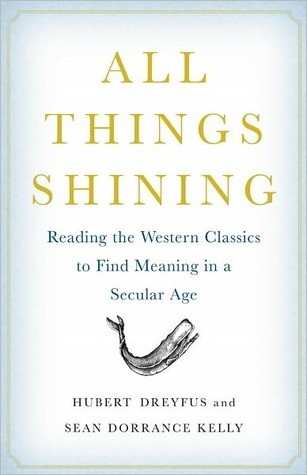More on this book
Kindle Notes & Highlights
Read between
November 9, 2018 - March 31, 2019
And yet the characteristic feature of the modern world is not just that many of us have a wider range of choices than ever before—choices about who to become, how to act, with whom to align ourselves. Rather, it is that when we find ourself confronted with these kinds of existential choices, we feel a lack of any genuine motivation to choose one over the others.
Homer’s basic account of human excellence involves the necessity of being in an appropriate relationship to whatever is understood to be sacred in the culture.
So a certain kind of gratitude becomes an essential component in the Homeric understanding of the best possible life. In one sense, then, the gods are whatever stands beyond us that requires our gratitude. The demand for this kind of gratitude is rather marginal in the modern world.
The question that really matters, in other words, is not whether God was the causal agent but whether gratitude was an appropriate response.
When works of art shine, they illuminate and glamorize a way of life, and all other things shine in their light. A work of art embodies the truth of its world.
There are no deep and hidden truths to the universe, and the meanings that there are cannot be seen with any clarity. Instead, the meanings we can find are made available through our engagement with the rituals and practices of our culture and others. But these background practices are not the kinds of things about which one could ever get clear.
Pip and Ahab contain within them the two basic possibilities left for the West if we hang on to the Axial intuition that there is an ultimate truth behind everything that is. Either we become crazy at the recognition that there is no such truth, or we drive ourselves crazy trying to prove there is.
The best way to see the conflict between these notions of the sacred is to focus on the body. Most human tasks—even intellectual or spiritual tasks—are related in some way or another to the body.
This cultivating, craftsman-like, poietic understanding of how to bring out meanings at their best was alive and well into the late nineteenth century, but it is under attack in our technological age.
The task of the craftsman is not to generate the meaning, but rather to cultivate in himself the skill for discerning the meanings that are already there.
There is another kind of poietic skill that no one has noticed yet, although it is already at work in people’s lives: the higher-order skill for responding to meaningful distinctions between dangerous and benign ways of being swept away.
To the extent that technology strips away the need for skill, it strips away the possibility of meaning as well.
To aspire to a life that requires no skill to live it well is to embrace the flattened world of contemporary nihilism.
But you can’t just decide to care about a domain, any more than you can make a decision about whom to love. How is anyone to discover what is worth caring about?


